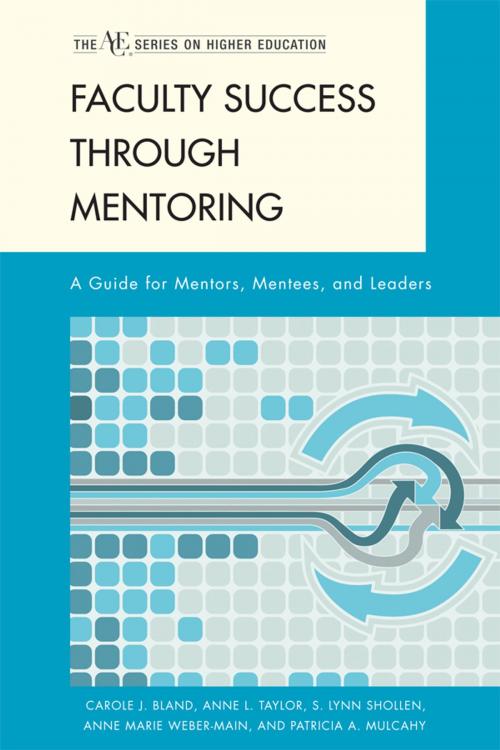Faculty Success through Mentoring
A Guide for Mentors, Mentees, and Leaders
Nonfiction, Reference & Language, Education & Teaching, Educational Theory, Leadership, Higher Education, Administration| Author: | Carole J. Bland, Anne L. Taylor, S. Lynn Shollen, Anne Marie Weber-Main, Patricia A. Mulcahy | ISBN: | 9781607090687 |
| Publisher: | Rowman & Littlefield Publishers | Publication: | February 16, 2009 |
| Imprint: | Rowman & Littlefield Publishers | Language: | English |
| Author: | Carole J. Bland, Anne L. Taylor, S. Lynn Shollen, Anne Marie Weber-Main, Patricia A. Mulcahy |
| ISBN: | 9781607090687 |
| Publisher: | Rowman & Littlefield Publishers |
| Publication: | February 16, 2009 |
| Imprint: | Rowman & Littlefield Publishers |
| Language: | English |
Few things are more essential to the success of an academic institution than vital faculty members. This book is a rich combination of findings from the literature and practical tools, which together assist academic leaders and faculty in implementing and participating in a successful formal mentoring program that can be used as a strategy for maintaining the vitality of a diverse faculty across all stages of an academic career.
In Faculty Success through Mentoring, the authors describe the tangible benefits of formal, traditional mentoring programs, in which mentor-mentee interactions are deliberate, structured, and goal-oriented. They outline the characteristics of effective mentors, mentees, and mentoring programs, and cover other models of mentoring programs, such as group and peer mentoring, which are particularly suited for senior and mid-career faculty.
Also included are tools that institutions, mentors, and mentees can use to navigate successfully through the phases of a mentoring relationship. One of the unique features of this book is its explicit attention to the challenges to effective mentoring across genders, ethnicities, and generations. No matter what role one plays in mentoring, this book is an invaluable resource.
Few things are more essential to the success of an academic institution than vital faculty members. This book is a rich combination of findings from the literature and practical tools, which together assist academic leaders and faculty in implementing and participating in a successful formal mentoring program that can be used as a strategy for maintaining the vitality of a diverse faculty across all stages of an academic career.
In Faculty Success through Mentoring, the authors describe the tangible benefits of formal, traditional mentoring programs, in which mentor-mentee interactions are deliberate, structured, and goal-oriented. They outline the characteristics of effective mentors, mentees, and mentoring programs, and cover other models of mentoring programs, such as group and peer mentoring, which are particularly suited for senior and mid-career faculty.
Also included are tools that institutions, mentors, and mentees can use to navigate successfully through the phases of a mentoring relationship. One of the unique features of this book is its explicit attention to the challenges to effective mentoring across genders, ethnicities, and generations. No matter what role one plays in mentoring, this book is an invaluable resource.















